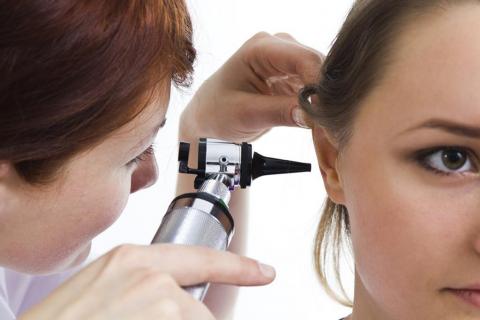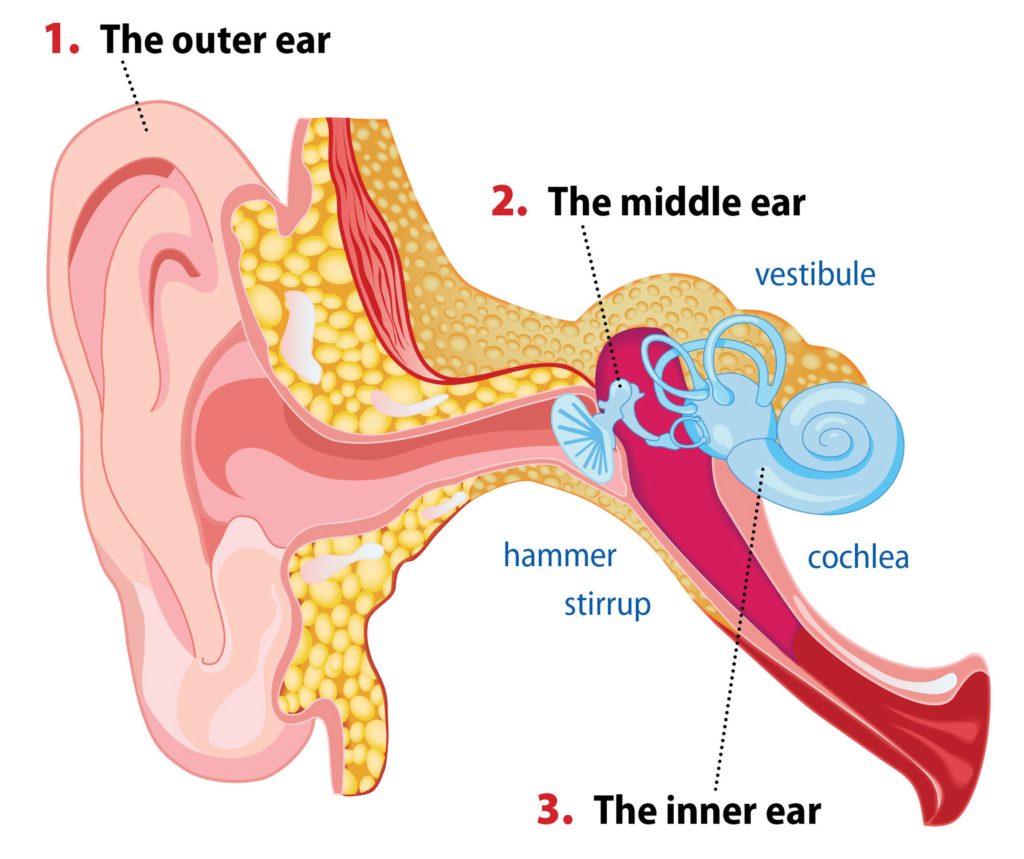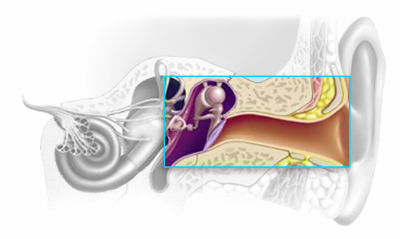Conductive hearing loss occurs when something prevents sound waves from passing through the outer and middle ear to reach the inner ear. In this article, we explain the main causes of this hearing impairment and possible treatment methods.
Types of hearing loss depending on the underlying issue
A few weeks back, we described how types of hearing loss can be differentiated depending on the age or stage at which the problem appears. This time, we will differentiate them according to the physical location of the underlying issue:
- Conductive hearing loss occurs when something prevents sound waves from passing through the outer and middle ear to reach the inner ear.
- Sensorineural hearing loss is caused by an underdeveloped sensory organ or damage to the inner ear or auditory nerve.
- Mixed hearing loss is a combination of conductive and sensorineural hearing issues.
This article centres on the key aspects of conductive hearing loss.

Conductive hearing loss: symptoms and causes
Conductive hearing loss is caused by a mechanical issue in the ear canal or middle ear. People suffering this issue often lower their voice when speaking, as they are under the impression that they speak too loudly.
The level of hearing loss in these cases is most commonly slight to moderate (25-65 decibels), and may be due to an earwax blockage, a perforated eardrum, an ear infection or a range of injuries and deformities. Any of these disorders can prevent sounds waves being correctly transmitted from the outer and middle ear to the inner ear.

Diagnosing conductive hearing loss
It is important to point out that, in some cases, conductive hearing loss is a temporary issue, and depending on the underlying problem, it can be treated with medication or surgery. In more serious cases, this hearing loss can be compensated with the use of a hearing aid.
If you are experiencing any type of hearing loss, it is important that you see a hearing aid specialist, who will conduct several different tests to determine the type and cause of your deafness. One of the most common diagnostic tests is a pure tone hearing test, which involves listening to sounds at different frequencies and volumes.

Using this type of test alongside other diagnostic methods, the medical specialist can determine the level of hearing loss and the most suitable treatment plan for each patient.
Have you ever had conductive hearing loss issues? Feel free to leave a comment here and share your experience with others in the same situation.
Photo credit: webconsultas, airfreshener

That’s good to know that you could get hearing loss from an ear infection or something. I would think that would be something you would want to take care of right away. I’ll have to make sure to go see a hearing doctor if I ever have an issue with hearing while I’m sick.
Yes, for sure. Thanks for your comment! 🙂
Thanks for explaining conductive hearing loss here. There are a lot of people who are dealing with this kind of hearing issue. It is essential to get checkups from time to time so that it can be treated on time. This step by step information is great and easy to understand.
There are many types of hearing loss or impairment. These can include conductive, sensorieunral and mixed.
When I woke up this morning, I noticed that my hearing has become a bit muffled and I’m worried that this might be a serious condition. Thanks for letting us know a conductive hearing loss may result from either an earwax blockage, a perforated eardrum, an ear infection, or other potential deformities. I’ll have to take an online hearing test later just in case before I contact a doctor for a diagnosis.
Thanks for sharing your experience with us, Anna. Actually our recommendation always is firstly to go get checked by an specialist.
It really helped when you elaborated on conductive hearing loss and how it’d be treated and corrected if detected on time. Last week, I visited my parents and noticed how my dad has some trouble hearing what we’re saying, so I think it’d be wise to find a specialist to check him out before it’s too late. I’m grateful for your insight on hearing loss and the importance of getting tested if you experience it.
Thank you so much for sharing your personal experience with us, Eli!